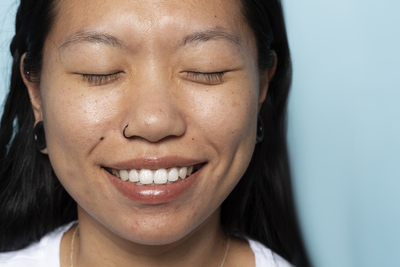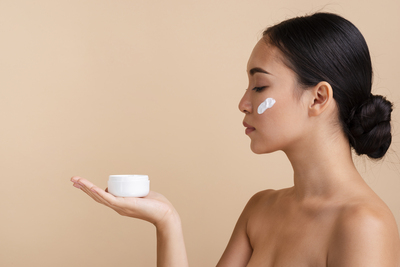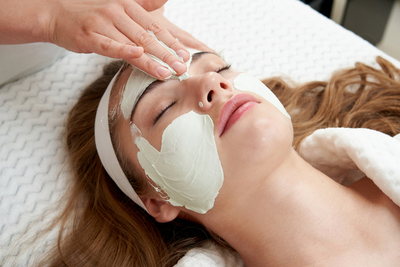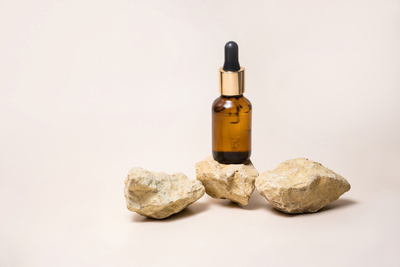Coconut Oil in Skincare: Hydrating Miracle or Pore-Clogging Nightmare?
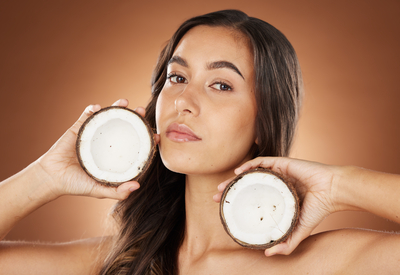
Coconut oil is one of the most talked-about skincare ingredients of all time. It’s praised for its rich hydration, healing properties, and natural glow, yet also blamed for clogged pores and breakouts.
So what’s the truth? Is coconut oil a natural miracle or just another comedogenic trap for acne-prone skin? Let’s break down the real science behind this controversial ingredient and how SkinBuddy helps you figure out whether it belongs in your routine.
What Is Coconut Oil and Why Is It Used in Skincare?
Coconut oil, derived from the kernel of the coconut, is a natural emollient loaded with saturated fatty acids, primarily lauric acid, capric acid, and caprylic acid.
According to a 2024 review on ResearchGate, coconut oil is an excellent moisturizer due to its ability to reduce transepidermal water loss (TEWL) and strengthen the skin’s natural lipid barrier.
It’s often included in creams, body lotions, cleansers, and hair products for its softening and nourishing properties.
But while it works wonders for dry skin, it can be a disaster for acne-prone faces and here’s why.
The Benefits of Coconut Oil in Skincare
1. Deep Moisturization
Coconut oil forms a protective barrier that locks in moisture, making it highly effective for dry, flaky, or eczema-prone skin.
2. Antimicrobial and Antifungal Properties
A study published in the Journal of Cosmetic Science found that lauric acid (which makes up nearly 50% of coconut oil) has strong antibacterial properties, particularly against Cutibacterium acnes—the bacteria associated with acne.
This might sound like good news, but don’t get too excited just yet.
3. Soothes Inflammation and Redness
Coconut oil’s fatty acids have anti-inflammatory effects, making it beneficial for calming irritation and mild eczema.
4. Supports Skin Barrier Function
Regular use can help strengthen the outermost skin layer, especially in dry or compromised skin.
The Dark Side: Why Coconut Oil Can Cause Breakouts
While coconut oil offers real benefits, it’s also one of the most comedogenic oils used in skincare.
Here’s why:
1. High Comedogenicity Score (4 out of 5)
Coconut oil is thick and occlusive. It can easily clog pores, trapping sebum, bacteria, and dead skin cells, especially in people with oily or acne-prone skin.
2. Acne Trigger for Many Users
Although lauric acid kills acne-causing bacteria, the heavy oil base can create the perfect environment for new breakouts.
3. Not Suitable for Face Application
While coconut oil works beautifully as a body moisturizer, it’s risky for facial use—particularly in the T-zone or for those prone to blackheads and closed comedones.
4. Risk of Fungal Acne Worsening
Because coconut oil is rich in certain fatty acids, it can potentially feed Malassezia (yeast) that causes fungal acne, worsening breakouts on the forehead, chest, or back.
👉 Bottom line: Coconut oil may be a hero for dry skin, but a villain for acne-prone or oily complexions.
When Coconut Oil Can Be Beneficial
Coconut oil can still be a great skincare ingredient—if used wisely.
-
Best for: Dry, rough, flaky, or eczema-prone skin (especially on the body)
-
Avoid for: Acne-prone, oily, or fungal acne-prone skin
-
Safe uses:
-
As a body moisturizer or hand cream
-
On elbows, knees, or heels for deep hydration
-
As a gentle makeup remover (followed by a cleanser)
-
As an overnight hair mask
-
Refined vs. Unrefined Coconut Oil
-
Unrefined (Virgin) Coconut Oil: Cold-pressed, rich in antioxidants, but more likely to clog pores.
-
Refined Coconut Oil: Filtered and deodorized; less nutrient-dense but lighter in texture.
For skincare, refined versions are generally better tolerated, though still not acne-safe.
How SkinBuddy Helps You Identify Comedogenic Ingredients Like Coconut Oil
Coconut oil can be tricky - sometimes it’s clearly listed, other times it hides behind ingredient synonyms like Cocos Nucifera Oil, Hydrogenated Coconut Oil, or Coconut Acid.
That’s where SkinBuddy makes all the difference:
- In your Skin Profile, select Acne-Prone Skin or Acne as your main concern.
- When you scan any product, SkinBuddy automatically flags comedogenic or acne-triggering ingredients like coconut oil.
- Each ingredient includes a risk explanation—from “Non-Comedogenic” to “Highly Comedogenic.”
- If acne-related concerns are selected, SkinBuddy automatically lowers the product’s rating to reflect breakout risk.
- In Discover Ideal Match, you can filter for Non-Comedogenic and Non-Irritating products - so you’ll never accidentally choose a formula that can clog pores.
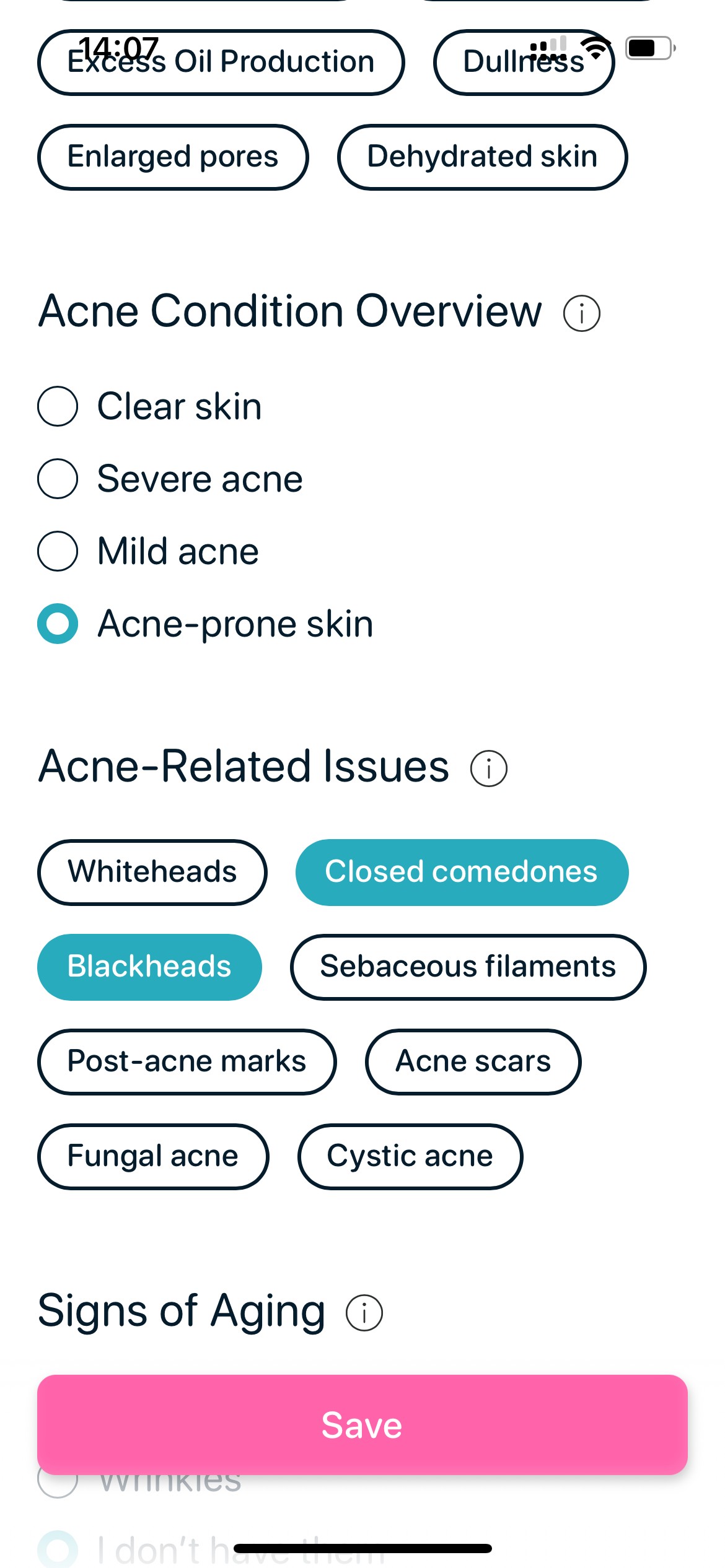
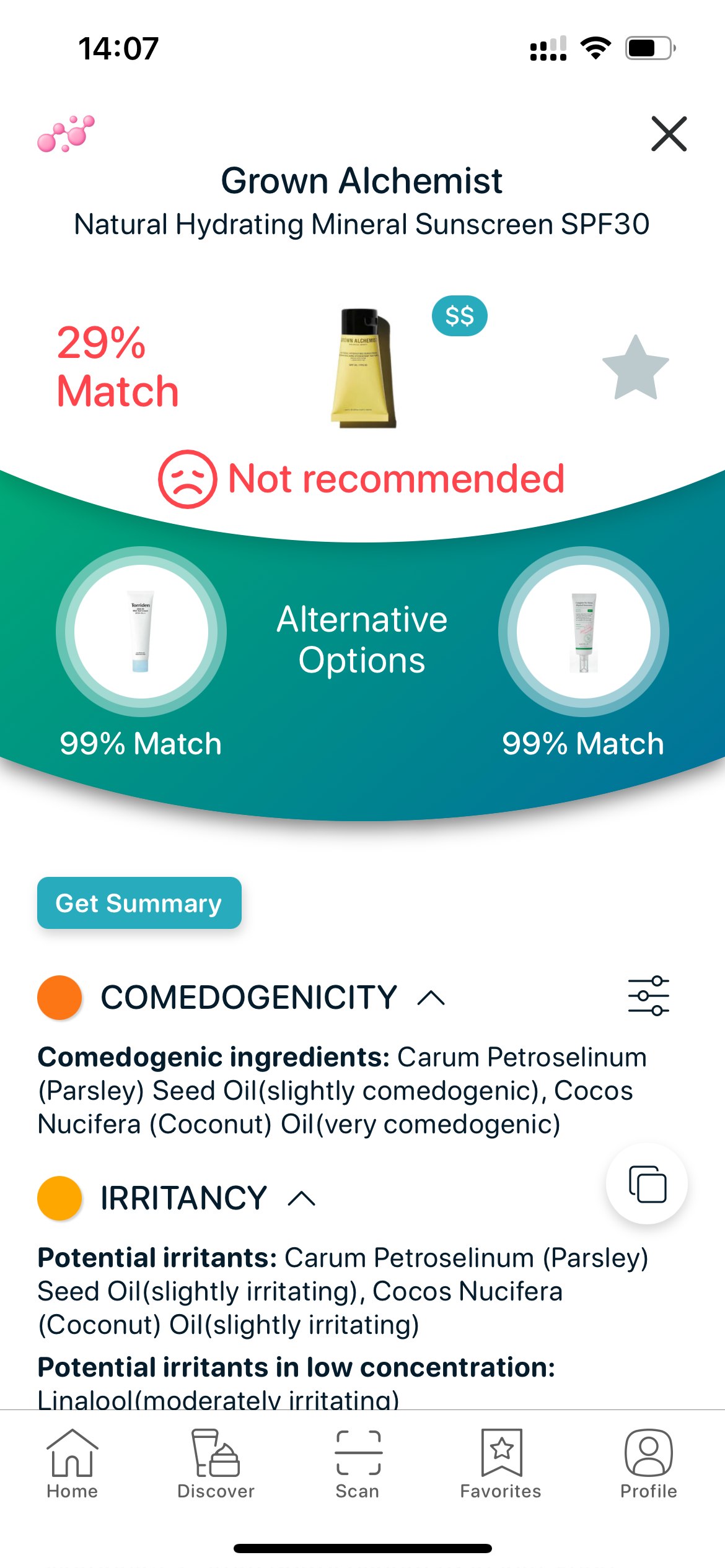
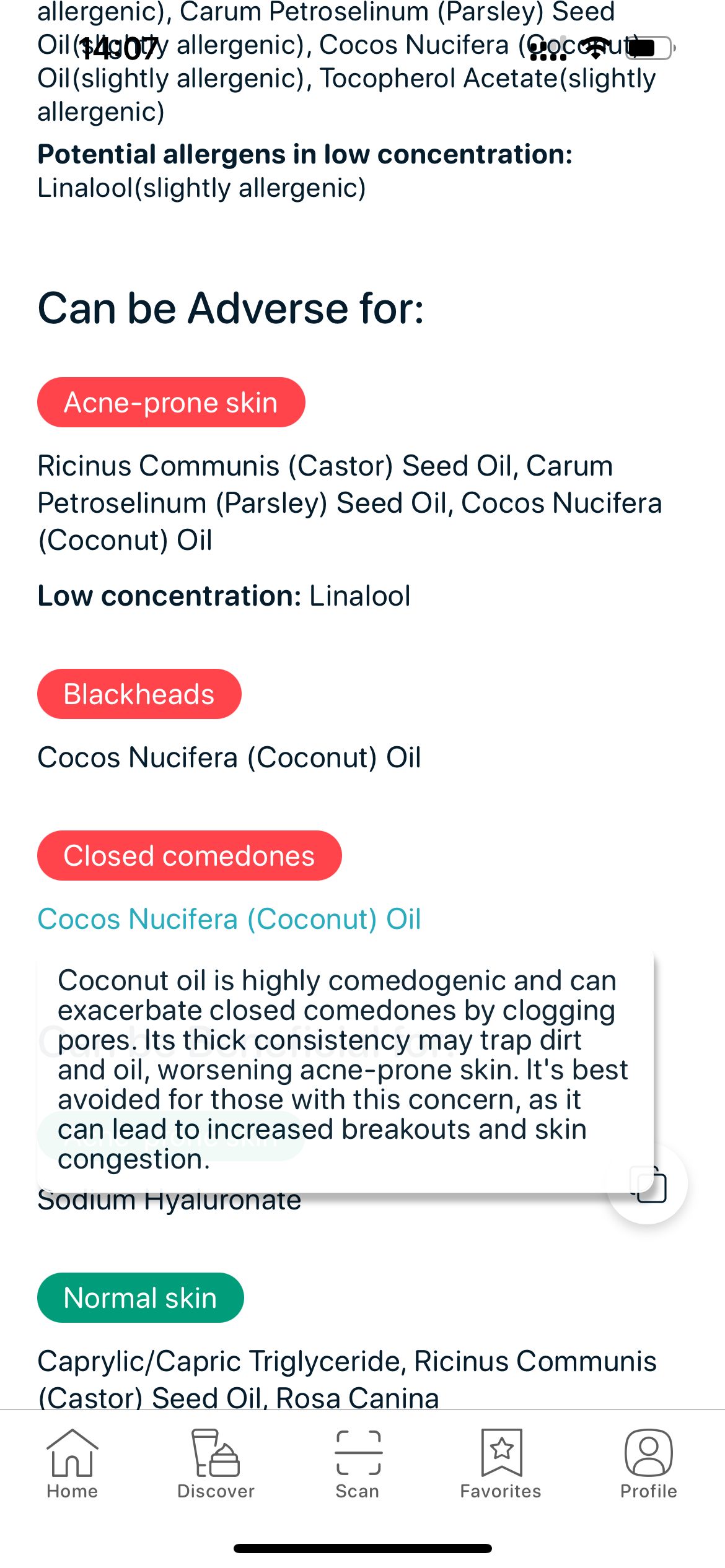
Try SkinBuddy to find out what works for your skin, and what doesn’t.
Scan your skincare, avoid pore-clogging or irritating ingredients, and discover smarter product matches. Open the web app or download the mobile app to get started.
or
Check Products OnlineCheck if your skincare suits your skin type, sensitivity, or acne-prone needs at skinbuddy.app and discover better options that match your routine and goals. SkinBuddy makes it easy, fast, and science-backed.
Scan to get started:

Web App (mobile only)

App Store & Google Play
FAQs About Coconut Oil in Skincare
-
Is coconut oil good for the face?
Only if your skin is dry and not acne-prone. For oily or breakout-prone skin, it’s better to avoid. -
Can coconut oil treat acne because it kills bacteria?
Although lauric acid has antibacterial properties, the oil’s occlusive texture usually outweighs the benefits for acne-prone users. -
Is coconut oil safe for sensitive skin?
Yes. If your skin isn’t prone to clogging. It’s soothing for dryness but too heavy for daily facial use. -
Does coconut oil cause fungal acne?
It can. Some fatty acids in coconut oil feed Malassezia, the yeast responsible for fungal acne. -
Can I still use products with small amounts of coconut oil?
Yes, if it’s low on the ingredient list or balanced with non-comedogenic oils, but SkinBuddy will help you spot and assess the risk instantly.
Final Thoughts
Coconut oil isn’t all good or all bad - it’s context-dependent. For dry, irritated, or aging skin, it can be deeply nourishing. But for acne-prone or oily skin, it’s often a breakout trigger waiting to happen.
The key is knowing your skin type and checking every ingredient list carefully.
With SkinBuddy, that process is effortless. We analyze every product for comedogenicity, irritation risk, and ingredient safety, so you can confidently choose what works for your skin.
👉 Want to know if your favorite moisturizer secretly contains pore-clogging ingredients?
Download the SkinBuddy app and get instant ingredient analysis tailored to your skin concerns.



